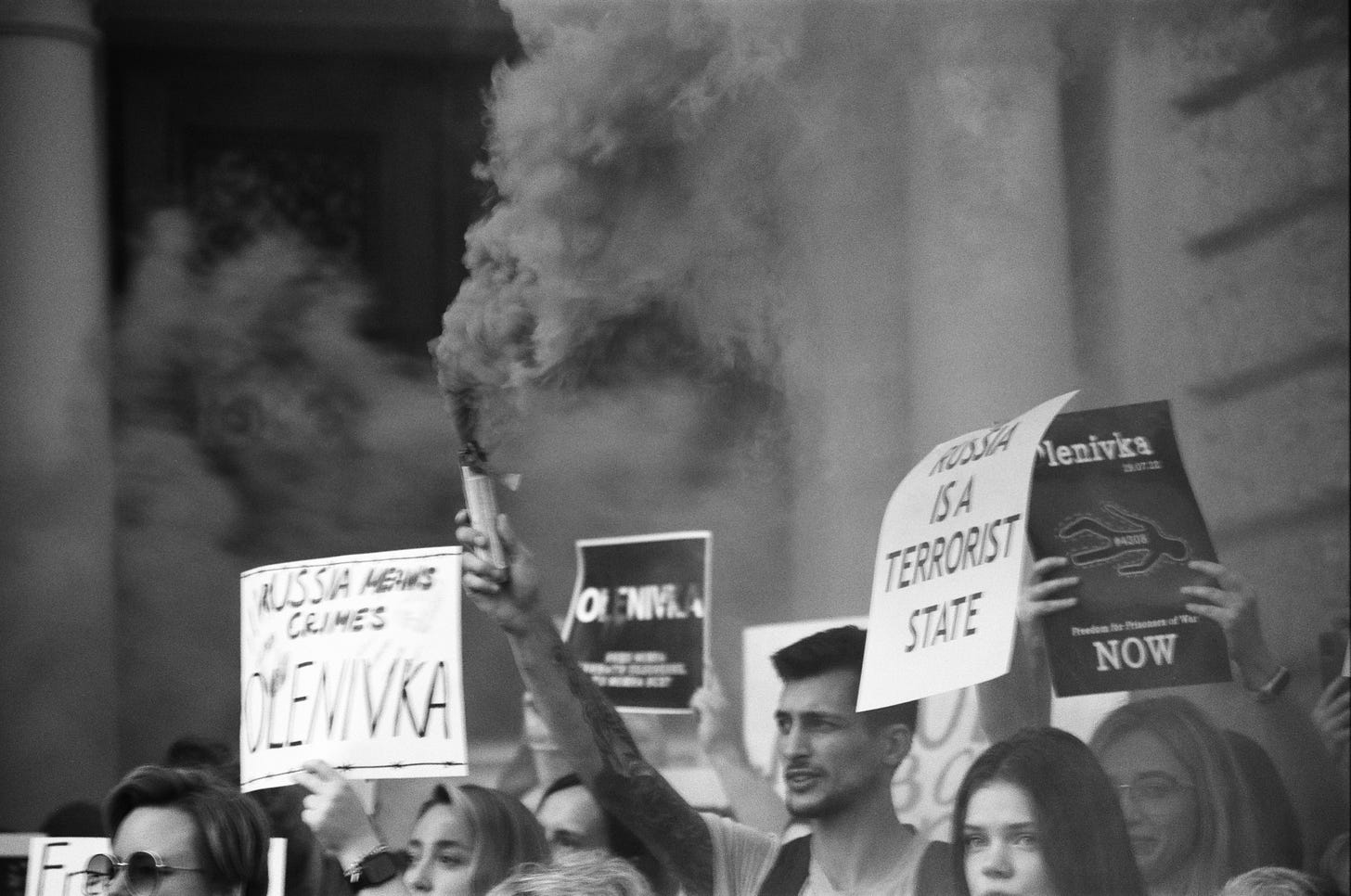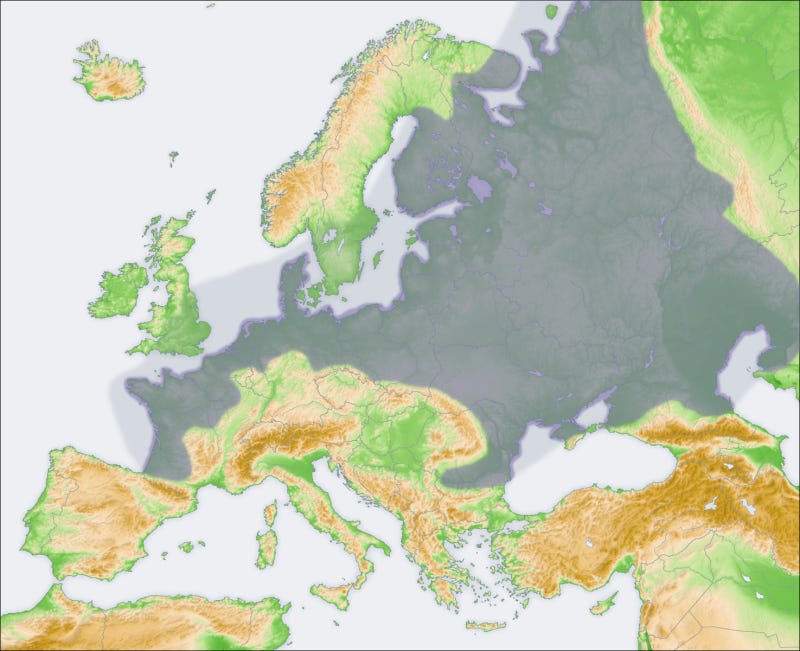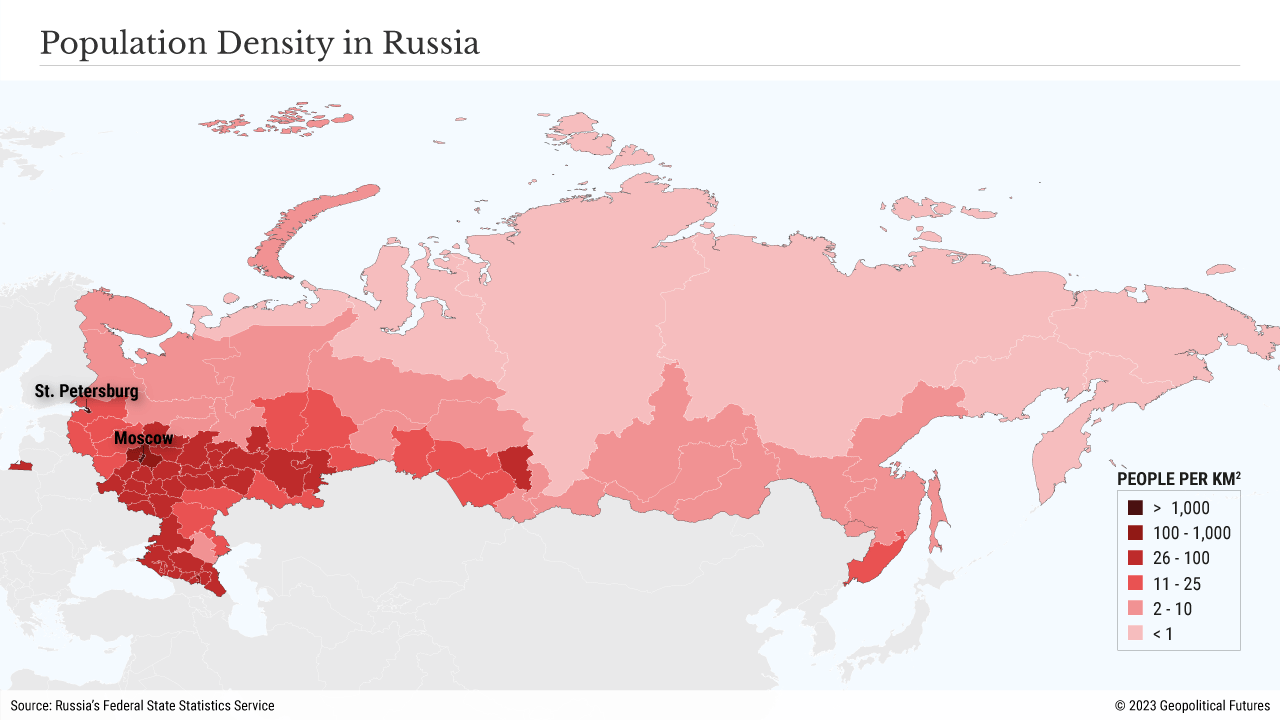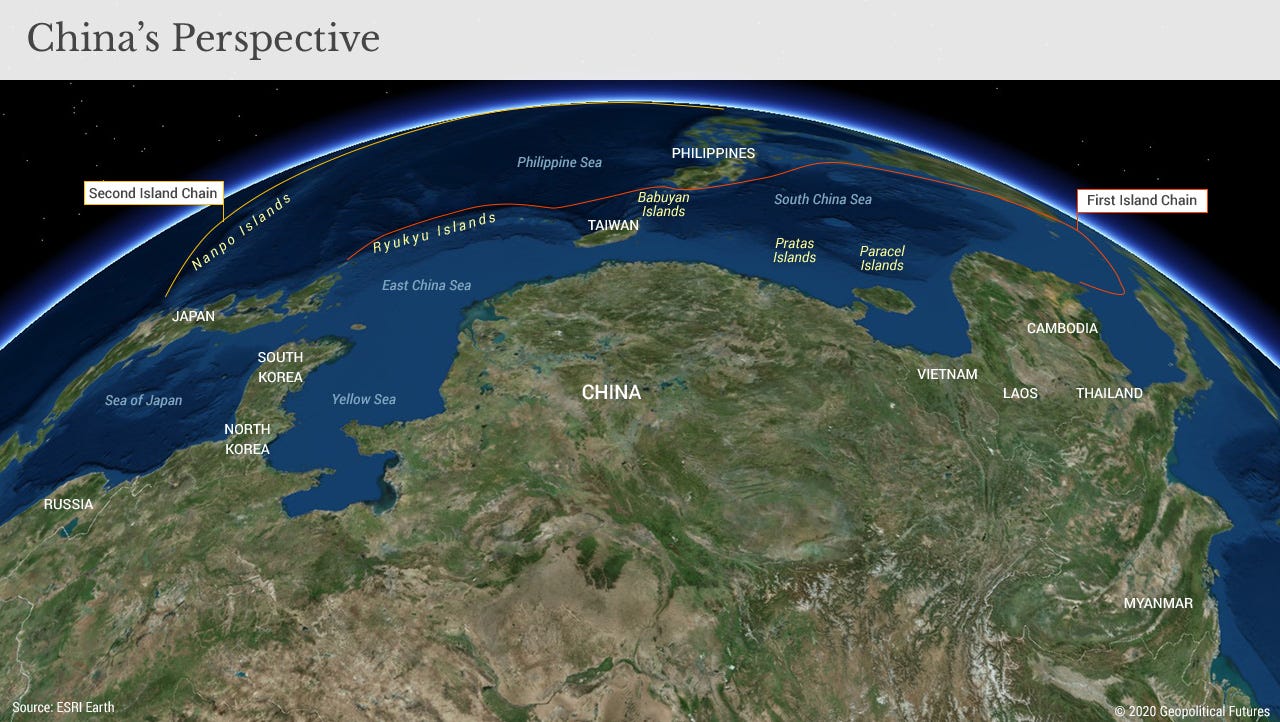Why the Ukraine endgame is just the beginning
Peace comes when leaders in Ukraine and Russia recognise stalemate is inevitable. What happens then? It's time to take The Sniff Test.
The Endgame in Ukraine
The signs that the war in Ukraine is in its endgame are all around us. A peace, when it comes, may well divide the country along today’s territorial lines of possession. Peace is a threat to war leaders, especially those who promise total victory and must settle for less. Thus it is delayed until domestic pressures in Ukraine and Russia are enough to force acceptance of the status quo.
Meanwhile the fighting fans out. This is both militarily and economically and is precisely what we expect to happen when a narrow conflict reaches stalemate and there are bigger issues at stake. Much bigger issues.
The Ukraine war is not about the country’s independence. It is about America keeping Russia from NATO’s eastern flanks and Russia preventing US troops being stationed 300 miles from Moscow. The space in between these redlines we call Ukraine.
The war is now about geoeconomics. This is the use of economic policies, such as sanctions and trade tariffs, to pursue strategic geopolitical aims. Geopolitics is the explanation for political behaviour through geographical realities. Neither are remotely new concepts, but their significance ebbs and flows. Right now it is rising.
The Priorities for Russia
In each of the last three centuries Russia has been invaded from the West across the European Plain. This stretches from the French coast to the Ural mountains. Three centuries ago the Swedes came, then it was Napoléon and finally Hitler. All three were defeated by Russia’s strategic depth.
This is a fancy phrase for saying it’s a long way to Moscow and jolly cold along the way. Another name for this is Ukraine, which is over 800 miles wide, twice the size of Italy and experiences heavy snowfall in winter. Controlling Ukraine is the ideal for Moscow, but its independence is the minimum that will be tolerated.
Russia has another exposed flank to its South West. 70% of its population and the bulk of its wealth lies in the 20% of its territory in Europe. This is where the country is most vulnerable.
The Caucasus Mountains in the south provide a natural barrier for Russia, but it must work tirelessly to maintain it. There is tension in the Southern Caucasus as Azerbaijan regains control of the breakaway Nagorno-Karabakh region, which has a majority population of Armenians.
The US has been more supportive of Armenia since the Ukraine conflict broke out and this week France promised military assistance. Meanwhile Russia’s allegiance has shifted to the more populous and richer Azerbaijan, due to the need for new economic ties under the pressure of western sanctions. Turkey and Iran are also present in the region, as both sense an opportunity to take advantage of Russian resources being stretched.
The Balkans Bite Back
The Russians have played this game before and do not sit idly by while other countries mess around in their borderlands. The Serbian president, with support from Moscow, recently announced that the lesson from Nagorno-Karabakh is that he will never accept Kosovan independence, even though the country has been recognised in the West since 2008. Kosovo is or was, depending on your view, part of Serbia that has a population that is 90% non-Serbian, much as Nagorno-Karabakh is an Armenian enclave that is part of Azerbaijan.
The EU brokered a compromise in Kosovo in 2013 that gave the Serbs a degree of self-rule while allowing ultimate control to remain with Kosovo. Neither side was happy, the EU has no means of enforcing it and the settlement never happened. Nonetheless, the EU continues to demand its enforcement by threatening Kosovo with economic sanctions.
Throughout history, geoeconomics works when countries have the military might to back it up. This means naval power that secures the trade routes that are essential for rising prosperity. The EU lacks a big stick with which to threaten countries and this limits its influence to its hinterlands and countries that prioritise access to its markets. The EU may lecture China, India and Brazil at times, but will always seek a deal and everyone knows that tough talk is part of the negotiations.
Thus a resolution in the Balkans requires American intervention, albeit via NATO. In turn, this requires British involvement, because it has the military power and Europe is its backyard. The British military presence in Kosovo rose by half this week ahead of annual exercises.
Russia stirs the pot in the Balkans in response to the disturbance in the Caucasus. Both are distractions to the war effort in Ukraine that are affordable because each sides is dug in and reasonably secure. Ukraine has become a war of attrition and all about economics and the ability to feed the war machine.
The Economic Costs of the War
When wars drag on they are won by the side with the stronger economy. Putin boasts of being able to supply three times as much ammunition as available to Ukraine, while NATO chiefs this week warned of a shortage of bullets and shells. These are political statements.
Putin must convince a domestic audience that the war can still be won. The West must signal to Zelenskyy that its support is finite, without encouraging Russia to believe it will quit. NATO is also reminding European countries of their long-ignored commitment to spend 2% of their economy on defence.
The US presidential election is a further complication delaying peace in Ukraine. Trump leads the polls, albeit with sufficient unknowns that the result could go either way, and is committed to forcing the Europeans to pay their dues or forfeit US backing. The possibility that if elected he would lose interest in Ukraine encourages the Russians to continue.
This is not without costs. By diverting resources to making weapons and ammunition, Russia starves the rest of its economy. This is at a time when it must invest to replace lost access to Western technology in the critical energy industry and build domestic alternatives to Western goods it can no longer buy.
The longer the war in Ukraine drags on the more important the relative economic costs of continuing it become. Neither side forgets that the last Cold War ended when Russia could no longer keep up with American defence spending.
The Reason Wyoming Votes Trump
Economic strength must be imposed on the opposition, which has costs for both sides. While denying countries access to resources or technology limits their options, it also takes a chunk out of your income. This is why sanctions are used sparingly and the longer they are in place the more breaches are tolerated.
In a military conflict the benefits of economic warfare outweigh the costs. The Union blockade of the South was an essential part of its strategy to win the Civil War and had far-reaching consequences. Factory employment in northern English mill towns fell a fifth in the early 1860s.
Germany ran out of oil early in World War II and was economically isolated. Its war effort was sustained by synthetic oil made from coal, but this is expensive and inefficient. The war films depict German tanks abandoned after D-Day because the soldiers ran away. In fact they ran out of fuel and had to walk home.
Ever since the Second World War the US has been the guarantor of global trade lanes. This is because it has naval control of both the Pacific and the Atlantic and carries the threat of shutting any country off from global trade. We see micro versions of this when Iran stops tankers in the Strait of Hormuz and in Russia’s attempts to blockade Ukrainian grain trade in the Black Sea.
With control of the seas the US guaranteed global supply lines and unleashed an unprecedented period of growth, particularly in the technology sector. This is no longer reflected in general prosperity in the US because it means exporting large numbers of manufacturing jobs, but it does contribute to the massive wealth differentials in the country. The Western seaboard leverages technology, while the Eastern finances and polices it, leaving Middle America to vote Trump.
Globalisation’s Fading Appeal
This week, hedge fund billionaire Ray Dalio warned that redlines between the US and China were on the brink of being crossed and could lead to war. A parallel was drawn with the US blockade of Japanese access to oil, which resulted in the attack on Pearl Harbour. Economic sanctions may force a country to back down, but in certain circumstances do lead to war. The inability to fight is one reason why Europe does not project true global influence.
Geoeconomics is mostly about access to technology. The longer something is around the easier it is to replicate, while new technologies drive economic advantage. Today’s battle ground technologies are semiconductors and clean tech.
The exceptional growth of the leading US technology companies relies on global trade. The essence of a consumer economy is a relentless focus on delivering an ever better customer experience. The super normal profits of Apple, Amazon and Microsoft are a result of cutting edge applications of the latest technology into an experience that the world wants to buy.
The second element of success is a ruthless focus on what you do best, immortalised in the commandment,
Focus is about saying no - Steve Jobs
Anything that someone else does better should be bought from that person, which leads to extended global supply chains that feed up towards the ultimate customer experience. Those closest to the customer take the majority of the profits, so building software is more profitable than hardware, which in turn is better than supplying components, which is superior to mining raw materials. But everything matters.
In the middle of the last decade there was a shift in US strategic thinking. Champions of bringing China into the global fold did a 180 degree pivot to favour limiting its access to cutting edge technologies. The Chinese were preparing for this for years.
BYD will overtake Telsa before Christmas as the largest manufacturer of electric vehicles. EVs have been subsidised aggressively for over a decade and as result China is already the world’s largest exporter of cars. The supply chains to fuel this growth have been secured for far longer.
China produces the bulk of the raw earth minerals required to make today’s technologies. Those that it cannot find at home it extracts in Chinese owned and operated mines throughout Africa and South America. US companies didn’t care because they were gobbling up the fat margins at the other end of the supply chain, but they care now.
The loudest protests about denying China access to bleeding edge semiconductor technology come from Silicon Valley. Not only is China a huge market for US firms, they understand that a sanctions tit-for-tat will cut off access to vital raw materials. Both sides would suffer greatly, but when the stakes are high enough, the battle commences.
The Most Important Place on Earth
China’s geopolitical imperative is to push the US navy back behind the second island chain, where its missiles cannot reach eastern ports or blockade trade. The US has no intention of retreating and works hard to secure an anti-China coalition among East Asian nations feeling bullied. As the map shows, Taiwan is centre of the Chinese view.
Taiwan manufactures the most sophisticated semiconductors. It may need US and European machines to do this, but it alone has the capabilities to mass produce. Recent delays in building offshoot factories in the US are blamed on a lack of skilled workers. By outsourcing, the US has lost the know-how to make things.
A story ran this week that Taiwanese companies are secretly helping Chinese technology firms, in breach of economic sanctions. This is the path to peace, but keeping two superpowers happy is a heavy burden for a small nation to bear. Whether it succeeds, depends on the willingness of the US to turn a blind eye and keep a lid on tensions. It may have no choice until it has rebuilt its cutting-edge manufacturing capability and secured alternatives to Chinese raw materials.
Russia meanwhile supplies energy for which there are alternatives, albeit more expensive and requiring new diplomatic initiatives. It can be isolated and squeezed, although Eastern Europe and possibly Germany are going to feel like Manchester mill workers during the US Civil War. The US and Russia will continue to play tit-for-tat cold wargames in the Caucasus, the Balkans and beyond, but the faster that clean tech takes hold, the less relevant these games will be.
The US is content with the situation in Ukraine and has bigger fish to fry further east. The suffering people in Ukraine and Russia wait for their leaders to realise this and more importantly to accept it.











In 1974, the World at War was produced and beautifully narrated by Laurence Olivier which for the first time brought the history of the Second World War into people's living rooms, whereas previously the go to accounts were by Hugh Trevor Roper and AJP Taylor.
The one episode relevant to this article on Russia Ukraine was Episode 11 - Red Star. https://www.google.com/url?q=https://www.dailymotion.com/video/x3oeavv&sa=U&sqi=2&ved=2ahUKEwigiuOl8d6BAxX9S_EDHRbjDfwQwqsBegQIBhAF&usg=AOvVaw38m_29Z_saotsn6H2npe7_, which focussed on the 2 year siege of Leningrad, but provided telling insights into the psyche of the Russian people who once again were targetted by the degrading European colonialists for, as Adolf Hitler clearly states in Mein Kampf, 'lebensraum in the east and make the Slavic people slaves to the Greater German Reich'
Naming the invasion of the plan to take over those lands after the 13th century Holy Roman emperor was not, I would argue, an accident As you highlight, Russia has been attacked three times by European imperial powers and prevailed three times....The question is why ? Is it related to the 1054 split of byzantine christianity from Holy Rome, for which Rome has never rescinded its desire to recover the Kievan Rus back to itself ? Russia therefore can be forgiven for having a generational paranoia about the existential threat it faces and this explains a lot about how it deals with attacks on its sovereignty.
Christopher Hitchens in his 1996 speech on the History of May 1945, made interesting observations about the Austrian journalist Ernst Fischer who from quite early on was in no doubt that the Soviet Union would prevail over its German invaders, and perhaps more relevant to today, the hiring of senior Nazi officials like Reinhard Gehlen into American intelligence (Operation Paperclip), which he referred to as the 'fascist ghost in the machine that has never been fully combed out' which is pertinent because Russia even under Putin has long maintained that Europe was never de nazified after the war. https://youtu.be/EFZuYi2oXsM?si=KJCL5xEGSDWPoI_T
So whilst the current Ukraine conflict looks bogged down into stalemate, it can be argued as discussed by Scott Ritter and Douglas MacGregor, that what in fact we are seeing is classic Russian military strategy to suck in everything the enemy can throw at them, and destroy it.
That is how they defeated Napolean, how they defeated Hitler and how they are likely to prevail over NATO (which Ukraine is being used as a proxy)
Its disgusting ! Its disastrous for Ukraine (and may also pose an existential threat to the EU where there is considerable dissent about Von der Leyen betting the house on Ukraine). But is this the conflict that once again destroys a unipolar dream and sustains the multipolar future ?
One to discuss over a few beers ?